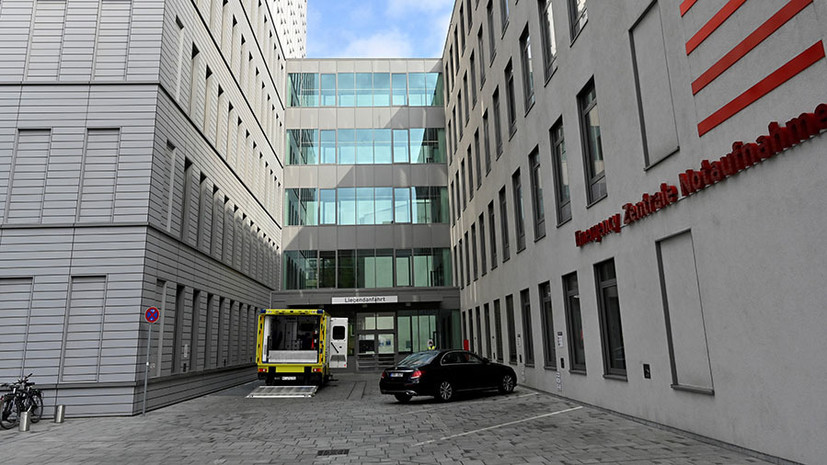Russian Foreign Minister Sergei Lavrov spoke about the situation with Alexei Navalny, noting that the Russian side "has nothing to hide."
Speaking at a press conference following the meeting of the BRICS foreign ministers, Lavrov pointed out that in the situation with Navalny, "everything is happening according to the old scenarios."
“When any accusations against us are brought up from public tribunes, when our official appeal with a request to use legal aid treaties and provide us with data in response to specific questions posed by the Russian Prosecutor General’s Office remain unanswered,” the minister said.
“Now I have to say out loud that, according to our information, this answer is delayed because of the position of the German Foreign Ministry,” Lavrov added.
He stressed that Russia will react to the current situation when it receives a response with specific facts.
“All this, unfortunately, is reminiscent of what happened to the Skripals and other stories when Russia was unfoundedly accused,” he said.
He noted that the Russian side is now approaching such "bombastic, pretentious" statements of Western colleagues with "a fair amount of skepticism."
According to Lavrov, the tone of Russia's western partners in the situation with Navalny suggests that "they have little to show apart from artificially forged pathos."
Recall that on August 20, the plane with Alexei Navalny on board made an emergency landing at the Omsk airport.
The reason was a sharp deterioration in the blogger's well-being.
The man was urgently taken to a local hospital, he was unconscious.
At the same time, the relatives insisted on the transfer of Navalny to the German clinic "Charite".
When the doctors of the Omsk hospital found the patient's condition stable, he was transported to Germany.
Subsequently, the official representative of the German government, Steffen Seibert, said that Alexei Navalny was allegedly poisoned with a nerve agent from the Novichok group.
The toxicological study was carried out by a special laboratory of the German Armed Forces.
Even later, the German media reported that German experts found traces of the poisonous substance not only in the blood, urine and on the skin of Alexei Navalny, but also on the bottle he took with him on the road.
According to Der Spiegel, this information was announced by a doctor at the Munich Institute of Pharmacology and Toxicology of the Bundeswehr at a government meeting.
At the same time, it is noted that Navalny allegedly drank from it when he was already "poisoned", leaving traces of poison on it.
According to the magazine, the bottle was handed over to the German military doctors by Navalny's relatives.
Russian Ambassador summoned to the Austrian Foreign Ministry
Meanwhile, the Austrian Foreign Ministry invited the Russian ambassador to Vienna for a conversation because of the situation around Alexei Navalny.
"We instructed this yesterday, and he (the ambassador. -
RT
) will be at the Foreign Ministry today," said the head of the Austrian Foreign Ministry Alexander Schallenberg the day before.
After a visit to the Austrian Foreign Ministry, Russian Ambassador to Austria Dmitry Lyubinsky, after a conversation at the Austrian Foreign Ministry, called inappropriate the demands for Russia to promptly investigate the incident with Navalny.
According to him, this procedure requires specific data requested from the German side.
"I consider inappropriate the sounding demands addressed to Russia to conduct a quick, open and comprehensive investigation in the absence of any information, facts and specific data from the German side, as well as the general reaction on the merits of the issues of the Prosecutor General's Office of Russia in the request of August 27," the ambassador wrote on his Facebook page.
We will remind, on September 4, the Department of Justice of Berlin confirmed the receipt of a request from the Prosecutor General's Office of the Russian Federation for legal assistance in the situation with Alexei Navalny.
The German department reported that the request was forwarded to the division of the Justice Department, responsible for legal assistance in criminal matters.
At the same time, it is noted that the decision to approve the request will be made "in consultation with the relevant federal agencies."
Intercepted recording
Meanwhile, Belarusian television released a recording of the conversation, in which, presumably, representatives of Berlin and Warsaw are discussing the situation around Navalny and the results of his analyzes.
Earlier, the Belarusian authorities reported that they intercepted the conversation, proving that the statements about the poisoning of Navalny were falsification.
The interlocutor, who presumably represents the German side, stated on the recording that the very fact of confirming or refuting information about the poisoning is not important, since "all means are good in war."
To this, the second participant in the dialogue noted that it is important to "discourage Putin from sticking his nose into the affairs of Belarus" and for this "drown him in the problems of Russia."
In addition, he recalled that the regions of the Russian Federation will soon have elections.
The interlocutors also noted that the President of Belarus Alexander Lukashenko turned out to be a "tough nut to crack", and officials and the military are still loyal to him.

